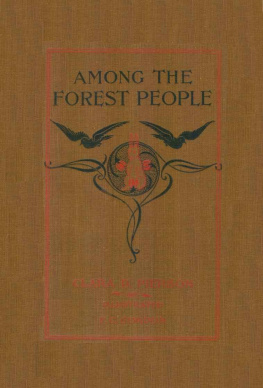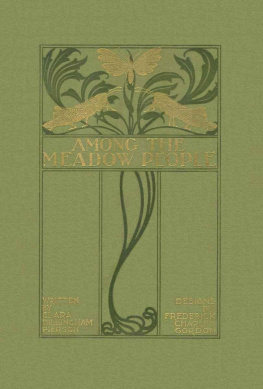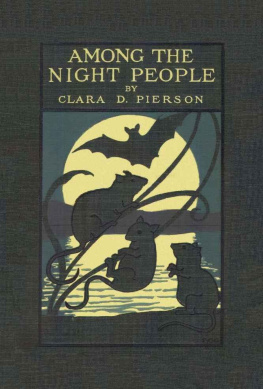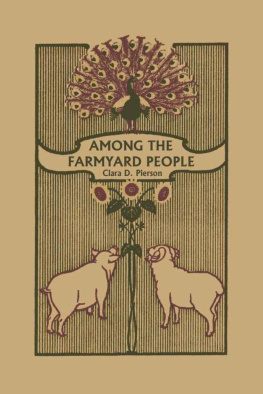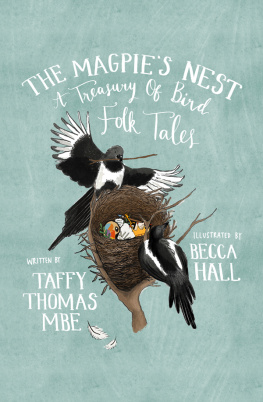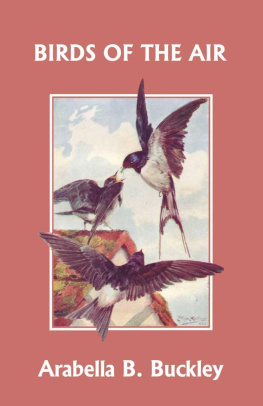Dooryard Stories
by
Clara Dillingham Pierson
Yesterday's Classics
Chapel Hill, North Carolina
Cover and Arrangement 2010 Yesterday's Classics, LLC
All rights reserved. No part of this book may be reproduced or retransmitted in any form or by any means without the written permission of the publisher.
This edition, first published in 2010 by Yesterday's Classics, an imprint of Yesterday's Classics, LLC, is an unabridged republication of the work originally published as Dooryard Stories in the United States by E. P. Dutton and Company in 1903. It was also published in Great Britain as Among the Garden People by John Murray in 1904. This title is available in a print edition (ISBN 978-1-59915-297-4).
Yesterday's Classics, LLC
PO Box 3418
Chapel Hill, NC 27515
Yesterday's Classics
Yesterday's Classics republishes classic books for children from the golden age of children's literature, the era from 1880 to 1920. Many of our titles are offered in high-quality paperback editions, with text cast in modern easy-to-read type for today's readers. The illustrations from the original volumes are included except in those few cases where the quality of the original images is too low to make their reproduction feasible. Unless specified otherwise, color illustrations in the original volumes are rendered in black and white in our print editions.
Preface
M Y D EAR L ITTLE F RIENDS:These stories are of things which I have seen with my own eyes in my own yard, and the people of whom I write are my friends and near neighbors. Some of them, indeed, live under my roof, and Silvertip has long been a member of our family. So, you see, I have not had to do like some writerssit down and think and think how to make the people act in their stories. Th ese tales are of things which have really happened, and all I have done is to write them down for you.
Many of them have been told over and over to my own little boy, and because he never tires of hearing of the time when Silvertip was a Kitten, and about the Wasps who built inside my shutters, I think you may care to hear also. He wants me to be sure to tell how baby Swift tumbled down the chimney into his bedroom, and wishes you might have seen it in the little nest we made. When I tell these tales to him, I have great trouble in ending them, for there is never a time when he does not ask: "And what did he do then Mother?" But I am telling you as much as I can of how everything happened, and if there was more which I did not see and describe, you will have to make up the rest to suit yourselves.
Besides, you know, there is always much which one cannot see or hear, but which one knows is happening somewhere in this beautiful great world. Th e birds do not stop living and working and loving when they leave us for the sunny south, and above us, and around us, and even under our feet many things are done which we cannot see. As we become better acquainted with the little people who live in our dooryards, we shall see more and more interesting things, and I wish you might all grow to be like my little boy, who is never lonely or in need of a playmate so long as a Caterpillar or a Grasshopper is in sight.
See how many tiny neighbors you have around you, and how much you can learn about them. Th en you will fi nd your own dooryard as interesting as mine and know that there are playmates everywhere.
Your friend,
Clara D. Pierson.
Stanton, Michigan,
October 30, 1902.
Contents
Silvertip
A VERY small, wet, and hungry Kitten pattered up and down a board walk one cold and rainy night. His fur was so soaked that it dripped water when he moved, and his poor little pink-cushioned paws splashed more water up from the puddly boards every time he stepped. His tail looked like a wet wisp of fur, and his little round face was very sad. "Meouw!" said he. "Meouw! Meouw!"
He heard somebody coming up the street. "I will follow that Gentleman," he thought, "and I will cry so that he will be sorry for me and give me a home."
When this person came nearer he saw that it was not a Gentleman at all, but a Lady who could hardly keep from being blown away. He could not have seen her except that Cat's eyes can see in the dark. "Meouw!" said the Kitten. "Meouw! Meouw!"
"Poor little Pussy!" said a voice above him. "Poor little Pussy! But you must not come with me."
"Meouw!" answered he, and trotted right along after her. He was a Kitten who was not easily discouraged. He rubbed up against her foot and made her stop for fear of stepping on him. Then he felt himself gently lifted up and put aside. He scrambled back and rubbed against her other foot. And so it was for more than two blocks. The Lady, as he always called her afterward, kept pushing him gently to one side and he kept scrambling back. Sometimes she even had to stand quite still for fear of stepping on him.
"Meouw!" said the Kitten, and he made up his mind that anybody who spoke so kindly to strange Kittens would be a good mistress. "I will stick to her," he said to himself. "I don't care how many times she pushes me away, I will scramble back."
When they turned in at the gate he saw a big house ahead of him with many windows brightly lighted and another light on the porch. "I like that home," he said to himself. "I will slip through the door when she opens it."
But after she had turned the key in the door she pushed him back and closed the screen between them. Then he heard her say: "Poor little Pussy! I want to take you in, but we have agreed not to adopt another Cat." Then she closed the door.
He wanted to explain that he was not really a Cat, only a little Kitten, but he had no chance to say anything, so he waited outside and thought and cried. He did not know that the Lady and her husband feared that Cats would eat the many birds who nested in the trees on the lawn. He thought it very hard luck for a tiny Kitten to be left out in the cold rain while the Lady was reading by a blazing grate fire. He did not know that as she sat by the fire she thought about him instead of her book, for she loved little Kittens, and found it hard to leave any out in the street alone.
While he was thinking and crying, a tall Gentleman with a black beard and twinkling brown eyes came striding up to the brightly lighted porch. "Well, Pussy-cat!" said the Gentleman, and took a bunch of shining, jingling things out of his pocket and stuck one of them into a little hole in the door and turned it. Then the door swung open, and the Gentleman, who was trying to close his umbrella and shake off the rain, called first to the Lady and then to the kitten. "O Clara!" he cried. "Come to see this poor little Kitten. Here Kitty, Kitty, Kitty! I know you want to see him. Here Kitty, Kitty, Kitty! I should have thought you would have heard him crying. Here, Kitty, Kitty, Kitty!"
The Lady came running out and was laughing. "Yes, John," she said, "I have had the pleasure of meeting him before. He was under my feet most of the way home from church to-night, and I could hardly bear to leave him outside. But you know what we promised each other, that we would not adopt another Cat, on account of the birds."
The Gentleman sat down upon the stairs and wiped the Kitten off with his handkerchief. "Y-yes, I know," he said weakly, "but Clara, look at this poor little fellow. He couldn't catch a Chipping Sparrow."
"Not now," answered the Lady, "yet he will grow, if he is like most Kittens, and you know what we said. If we don't stick to it we will soon have as many Cats as we did a few years ago."


